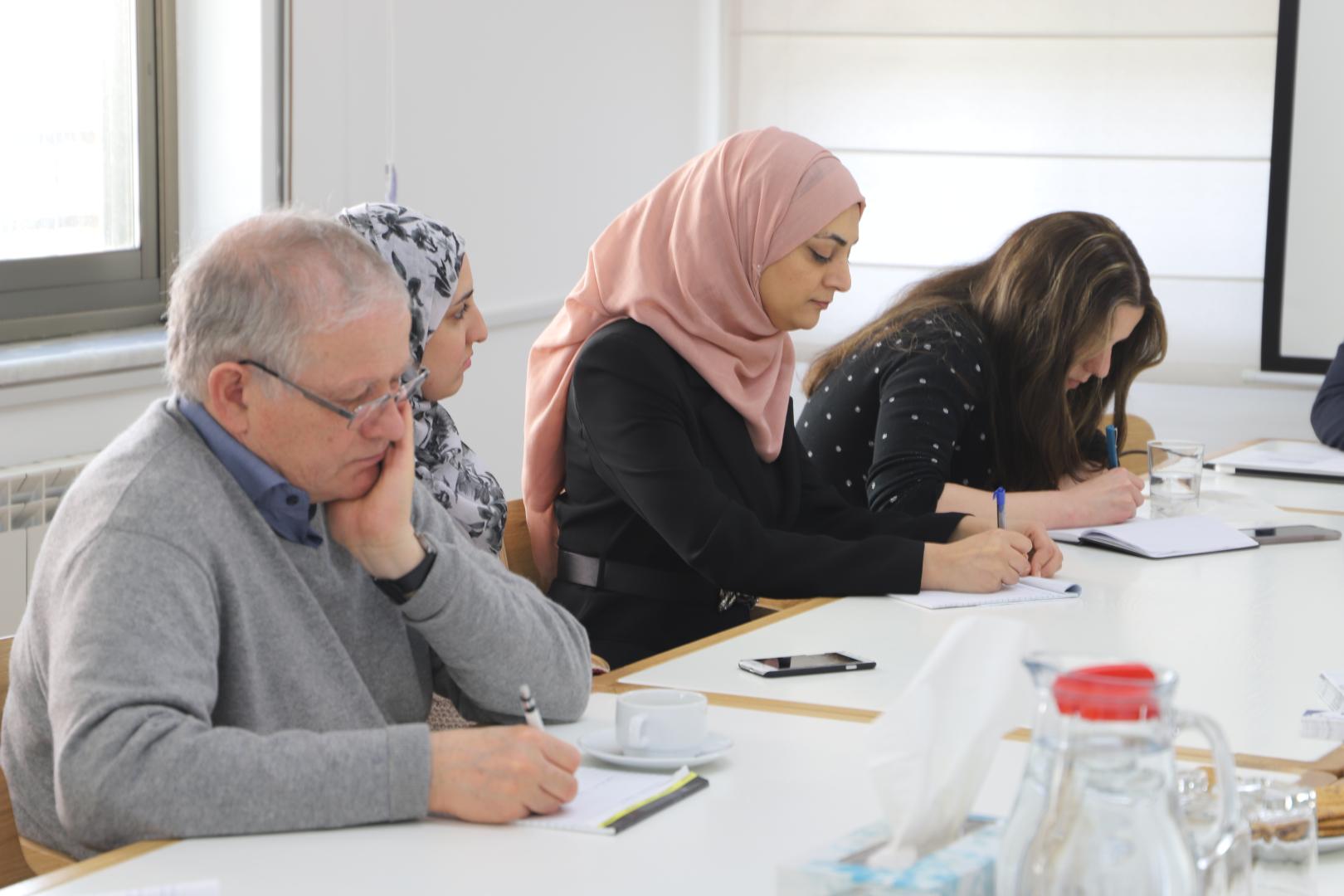Daniela Huber, senior fellow in the Mediterranean and Middle East program at IAI, opened her presentation with an analysis of how the international community dealt with the Israeli-Palestinian conflict. She distinguishes between three historical periods in which the UN first assumed the role of a mere conflict management tool and was later replaced by the US and its strategy of unilateral negotiations with the two parties. The European Union took on the role of a donor without questioning the strategy of the US. The unilateral approach of the USA with the focus on bilateral agreements with individual states and actors in the region prevents a regional order to this day.
Dimitris Bouris, Assistenzprofessor für EU-Sicherheit / Europäische Außenbeziehungen am Institut für Politikwissenschaft der Universität Amsterdam, analysierte weiterhin das Fehlen einer eigenen Strategie der Europäischen Union zur Bewältigung des israelisch-palästinensischen Konflikts. Er konzentrierte sich auf die EUPOL COPPS- und EUBAM-Missionen der EU. Die EUPOL-COPPS-Mission hat ein Mandat in den Palästinensischen Gebieten, das hauptsächlich auf Gebiet A beschränkt ist. Die 2005 gestartete EUBAM (Rafah Border Crossing Mission) zur Überwachung der Grenzübergänge zwischen dem Gazastreifen und Ägypten ist seit 2007 inaktiv.
Nach den Präsentationen der Experten führten wir zusammen mit dem Publikum eine fruchtbare Diskussion über die europäischen Auswirkungen auf den Konflikt.





